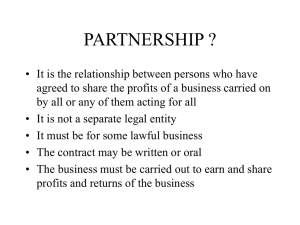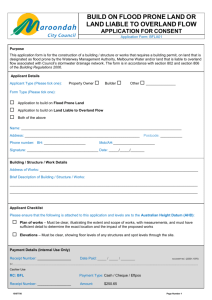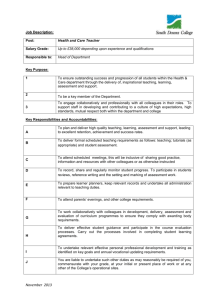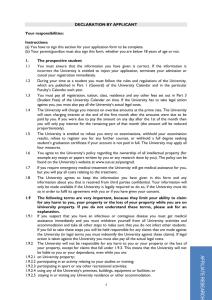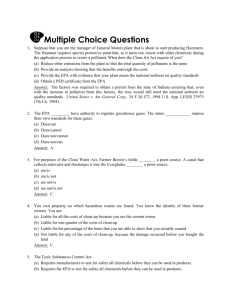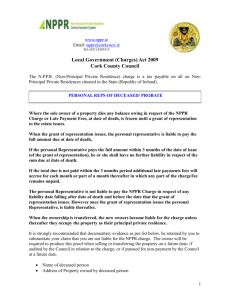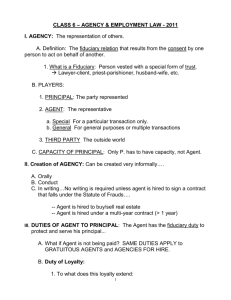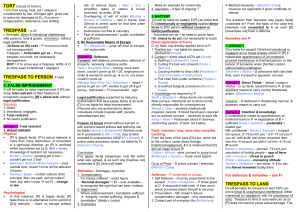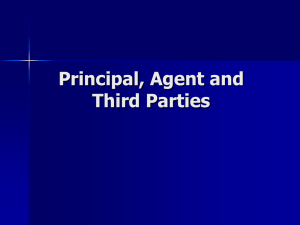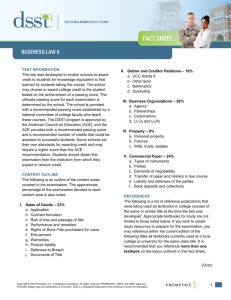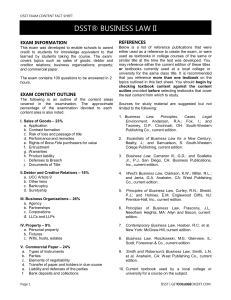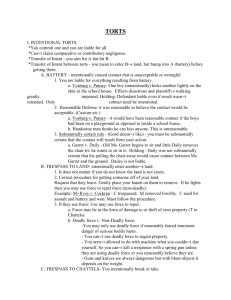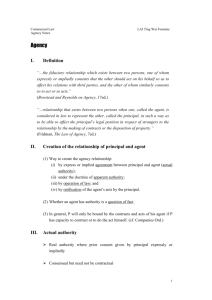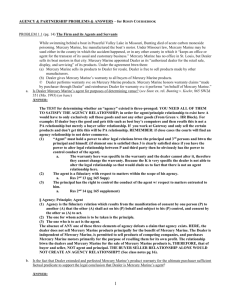Please answer the following questions as True/False/Unsure
advertisement
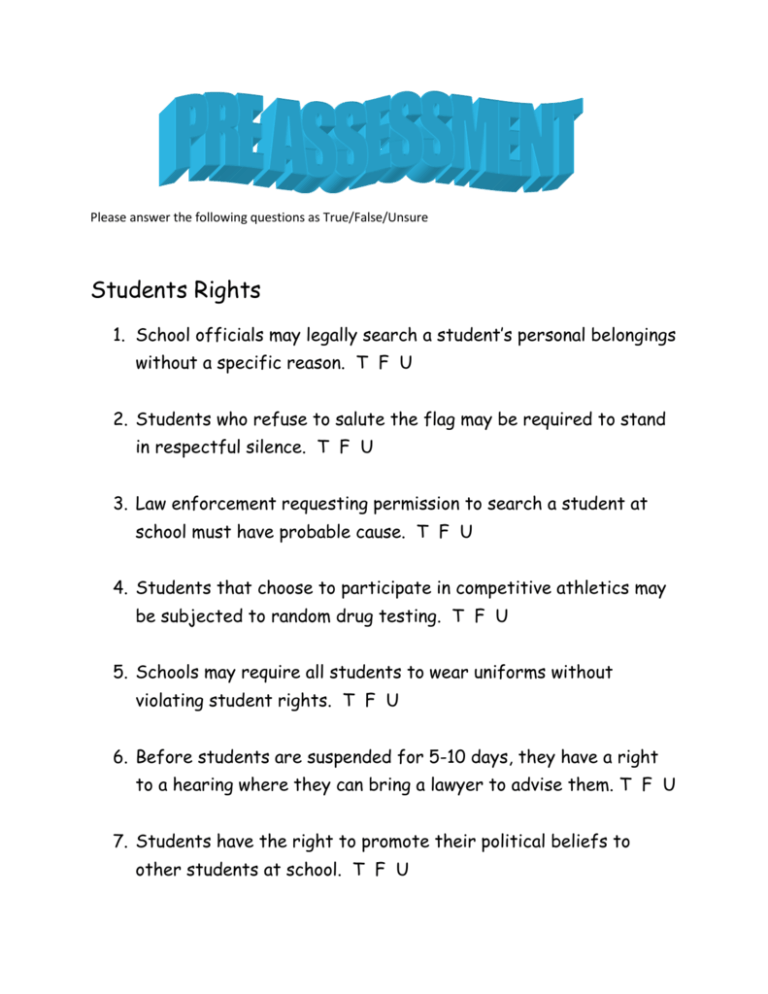
Please answer the following questions as True/False/Unsure Students Rights 1. School officials may legally search a student’s personal belongings without a specific reason. T F U 2. Students who refuse to salute the flag may be required to stand in respectful silence. T F U 3. Law enforcement requesting permission to search a student at school must have probable cause. T F U 4. Students that choose to participate in competitive athletics may be subjected to random drug testing. T F U 5. Schools may require all students to wear uniforms without violating student rights. T F U 6. Before students are suspended for 5-10 days, they have a right to a hearing where they can bring a lawyer to advise them. T F U 7. Students have the right to promote their political beliefs to other students at school. T F U 8. School officials must permit students to distribute controversial religious materials on campus if it does not cause a disruption. T F U 9. Students have a constitutional right to participate in extracurricular activities. T F U 10. Students may wear T-shirts that criticize school policies as long as they do not cause a significant interference with school operations. T F U 11. The first amendment protects student speech that is offensive, provocative, and controversial. T F U 12. Invocations and benedictions at graduation ceremonies are permitted. T F U Teacher Rights/Liability 1. Teachers can be held liable for any injury that occurs if they leave their classroom unattended. T F U 2. Teachers may be held liable for their failure to report sexual, physical or verbal abuse. T F U 3. It is unconstitutional to study the Bible in a public school. T F U 4. Teachers can be disciplined for publicly criticizing school policies of community concern. T F U 5. Teachers have the legal authority to select the texts for their students. T F U 6. Academic freedom generally protects teachers who discuss controversial subjects if they are relevant, appropriate for the age and maturity of the students, and do not cause disruption. T F U 7. If a teacher is asked to give a recommendation by a student and includes false information in the recommendation that causes a student to be rejected for a job, the teacher can be held liable for libel even if the libel was unintentional. T F U 8. Teachers are prohibited from viewing their students’ records unless they receive permission from the parents or the principal. T F U 9. Public schools can fire a teacher for having a consensual sexual relationship with a student in their school even if the student is over 18. T F U 10.Teachers cannot be held liable for student injuries that occur in breaking up a fight. T F U 11.Teachers/schools can be held liable for educational malpractice. T F U 12.As an agent of the state, a public school teacher is constrained by the Bill of Rights. T F U 13. Teachers can be sued for defamation if their report of student abuse is not substantiated. T F U 14. Schools can be held liable for failing to prevent student sexual harassment. T F U 15. Schools have the right to require supplemental material approved by administrators in advance without violating teachers’ academic freedom. T F U 16. Schools can impose rigid dress codes on teachers without violating their rights. T F U 17. If a teacher gives a student a ride home from school without parental permission and the student is injured-not as a result of teacher negligence- the teacher would still be held liable. T F U Open Ended If you knew the answers to the questions above, would you have acted differently as a teacher? Student Rights Questions 1. FALSE In New Jersey v T.L.O., the Supreme Court ruled that public school officials must have “reasonable suspicion” to search students and that such suspicion must be reasonable in “inception” and in “scope” 2. FALSE Students who refuse to salute the flag may not be required to stand or leave the room and may remain seated. 3. TRUE Unlike school personnel, police must have probably cause to believe that individual students possess illegal items before searching them. 4. TRUE The Supreme Court has ruled that schools may require students to sign waivers to allow random, suspicionless drug testing before participating in competitive athletics or extracurricular activities. 5. TRUE Students have no constitutional right to dress as they wish 6. FALSE Before being suspended for 1 to 10 days, students only have a constitutional right to an informal notice and hearing, but they usually do have a right to bring a lawyer in cases of possible expulsion. 7. TRUE The First Amendment protects student freedom to promote their political or religious beliefs in a non-disruptive manner. 8. TRUE Student freedom of expression includes the right to non disruptively share controversial religious beliefs verbally or in writing. 9. FALSE Schools have no duty to provide extracurricular activities, and participation in not a constitutional right. 10. TRUE Students usually have a right to criticize school policies verbally, in writing, or on T-shirts as long as they don’t cause substantial disruption or interfere with the rights of others. 11. TRUE Controversial, provocative, and even offensive speech is protected by the First Amendment if it is not obscene, does not cause disruption or interfere with the rights of others, or promote illegal activity. 12. FALSE The Supreme Court has ruled that school-sponsored graduation prayers at public schools violate the Establishment Clause of the First Amendment. TEACHER RIGHTS/RESPONSIBILITIES 1. FALSE Teachers can only be held liable if they are negligent (i.e., they fail to act with reasonable care) and their negligence causes the injury. Most injuries are the result of accidents, not negligence. 2. TRUE Teachers are mandatory reporters of student abuse and neglect. 3. FALSE Although public schools may not promote religion, the BIBLE can be studied objectively as part of secular courses, such as literature or history. 4. FALSE The First Amendment protects teachers when they speak or write publicly and critically as citizens about matters of public concern, including education policies. 5. FALSE School boards have the authority to select texts. 6. TRUE Although academic freedom is limited in K-12 schools, it usually allows teachers to discuss controversial subjects if their comments are balanced, relevant, age-appropriate, and non disruptive. 7. FALSE When teachers give recommendations as part of their job, they are protected by a “qualified privilege.” This means that they can’t be held liable for defamation for false information that they had reason to believe was true. 8. FALSE The Family Educational Rights and Privacy Act protects student records from being shared with outsiders without parental permission but permits access by educators who have “legitimate educational interests” in seeing records. 9. TRUE Schools can prohibit consensual sexual relations between teachers and students of any age to avoid conflicts of interest. 10. TRUE The federal Teacher Liability Protection Act protects teachers from liability for injuring students while enforcing discipline even if the teacher is negligent. 11. FALSE Courts have declined to hold teachers or schools liable for educational malpractice. 12. TRUE Since public schools operate as state agencies, teachers’ actions are constrained by the Constitution, which prohibits government employees from violating students’ rights. 13. FALSE As long as teachers have a “reason to believe” that abuse took place, they cannot be held liable for defamation even if an investigation proves that no abuse took place. 14. FALSE The Supreme Court has held that schools cannot be held liable for failing to prevent peer sexual harassment. Schools can only be held liable for their “deliberate indifference” after officials have been informed of abuse that is “severe, pervasive and objectively offensive” and the school’s action or inaction is “clearly unreasonable.” In addition, the Court ruled that the school districts will only be liable for a teacher’s harassment when the district is “deliberately indifferent to known acts of sexual harassment by a teacher.” 15. TRUE Although most schools do not require prior approval of supplementary material, K-12 administrators usually have authority to require approval in advance. 16. TRUE Although many schools have no written dress code for teachers, they may impose strict, professional dress codes if they wish. 17. FALSE Although many schools discourage teachers from driving students in their cars, teachers cannot be held liable for a student’s injury unless it is proven that their negligent driving caused the injury. Harvard Educational Review Legal Literacy for Teachers: A Neglected Responsibility David Schimmel and Matthew Militello
